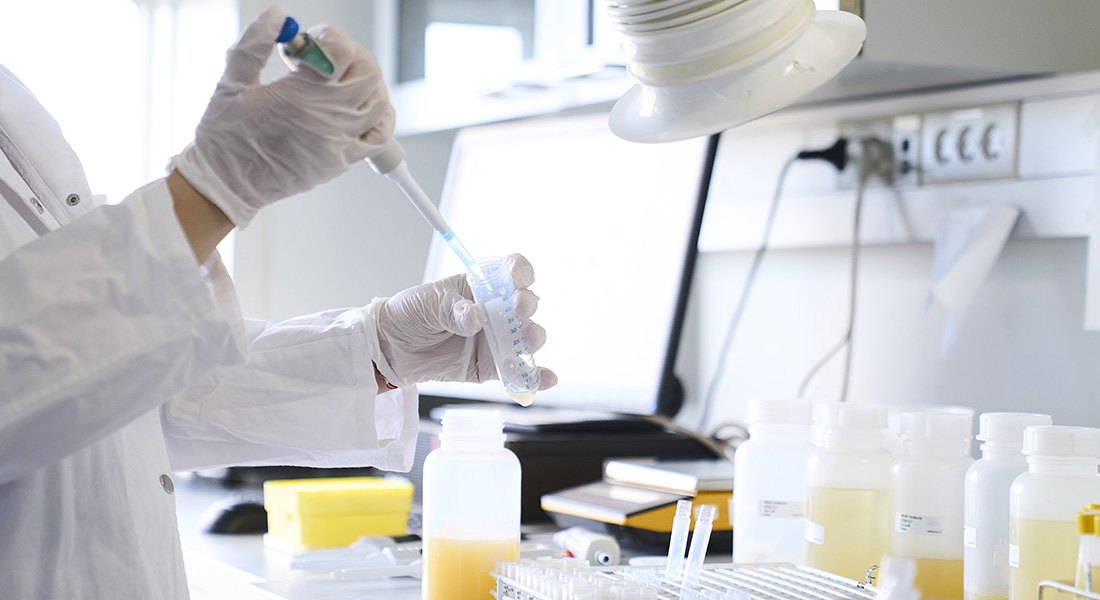The truth detector in nutrition research is getting closer
What did you have for lunch last Tuesday? Can you easily recall? Nutrition research relies on self-reported dietary information, yet this data is often imprecise. A new review from the Department of Nutrition, Exercise and Sports outlines key strategies to begin implementing biomarkers from urine and blood samples as dietary tools.

Measuring dietary intake accurately is notoriously challenging, yet essential for studying the relationship between diet and health outcomes. Over the past decade, a dedicated team of researchers at the Department of Nutrition, Exercise and Sports led by Professor Lars Ove Dragsted, has focused on developing biomarkers that can measure food intake directly from urine and blood samples.
Improved confidence in nutrition research
The field has now reached the potential to improve confidence in nutrition research by enhancing the assessment of adherence to dietary interventions and by determining individual intakes of foods and dietary patterns to leverage precision nutrition.
We are thrilled to see the biomarker field gaining momentum. Despite its potential in dietary assessment, no review has made biomarkers of food intake widely accessible outside the community. Here, we invite for their broader implementation in nutrition and health research to demonstrate the value of an objective dietary assessment," says lead author Assistant Professor Catalina Cuparencu from Department of Nutrition, Exercise and Sports.
The authors of the review combine a range of complementary topics, extending beyond nutrition and metabolism to include analytical chemistry, pharmacokinetic data simulations, and data sharing, which are often needed to develop this field. The group is receiving international recognition; Catalina recently returned from Japan, where she gave two talks disseminating the subject at the Metabolomics Conference and her work was honored with an Early Career Travel Award.
Can we apply biomarkers in population studies?
"While we can already achieve this to some extent, the future of dietary assessment through intake biomarkers lies in collecting and combining multiple samples also in large-scale cohorts, and not only in dietary interventions. This approach leverages the interaction between biomarker kinetics and meal patterns such as timing and frequency, both of which are crucial for planning sampling and analyses in human studies," says Catalina Cuparencu.
The researchers therefore emphasize the need for considering the use of biomarkers of food intake for dietary assessment in the next-generation of deep-phenotyping cohorts and encourage other researchers designing human dietary interventions to include intake biomarkers in their compliance assessments.
The review Towards nutrition with precision: unlocking biomarkers as dietary assessment tools is published in the esteemed scientific journal Nature Metabolism. The work was funded by a Semper Ardens grant from the Carlsberg Foundation, and a grant from Novo Nordisk Foundation through the PRIMA project.
Find more on the work on biomarkers here.
The team behind the review
Department of Nutrition, Exercise and Sports, Section for Nutrition and Health.
Research group: Nutrition, Microbiome and Metabolomics
Assistant Professor Catalina Cuparencu, Guest researcher Tuğce Bulmuş-Tüccar, Assistant Professor Jan Stanstrup, Assistant Professor Giorgia la Barbera, Associate Professor Henrik Munch Roager, and Professor Lars Ove Dragsted.
Contact
For more info about the research – please contact
Assistant Professor Catalina Cuparencu
Department of Nutrition, Exercise and Sport
University of Copenhagen
Email: cup@nexs.ku.dk
Telephone: +45 5011 5029
